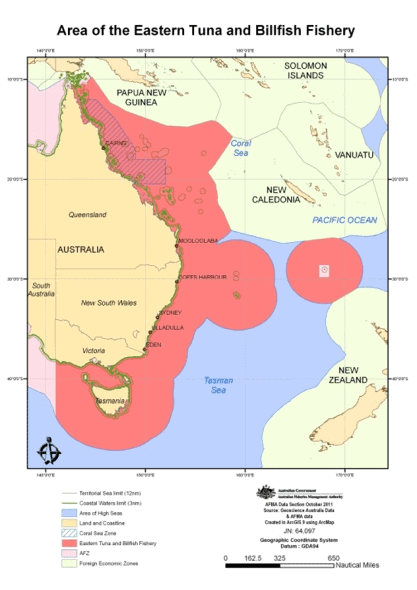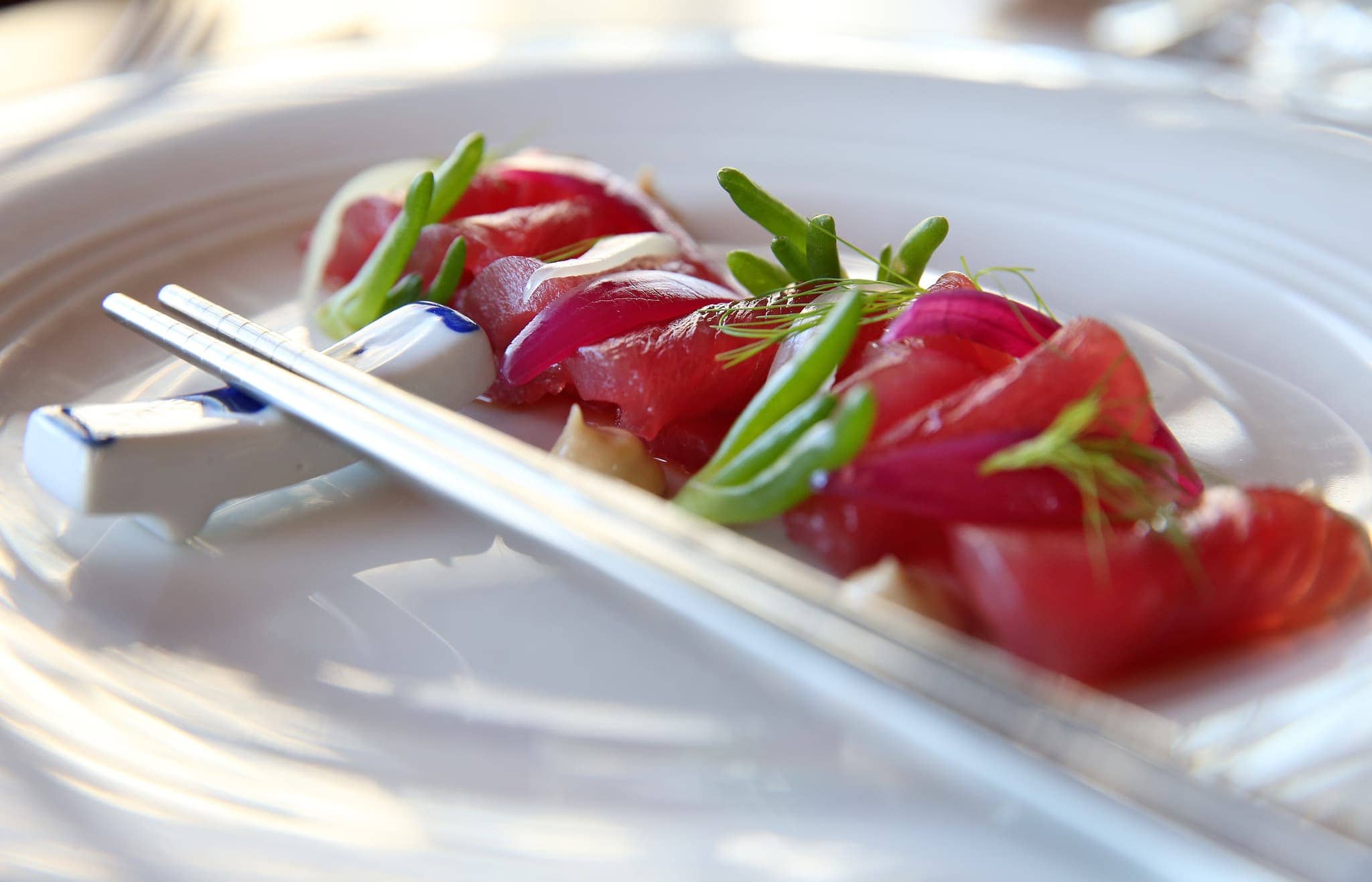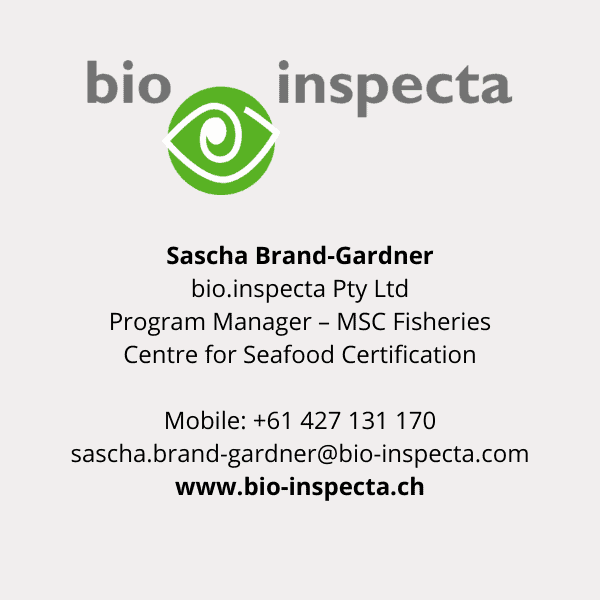‘World-class management’: Eastern Tuna and Billfish Fishery receives MSC certification for sustainability
The Eastern Tuna and Billfish Fishery (ETBF), one of Australia’s largest fisheries, has achieved the global gold standard for sustainability with the awarding of Marine Stewardship Council certification.
The MSC certification for the ETBF has been achieved thanks to support from the Australian Government’s Our Marine Parks Grants Program, announced Minister for the Environment Sussan Ley today.
“The certification achieved by Tuna Australia for the ETBF highlights Australia’s world-class fisheries management and the interdependency of fisheries on a healthy and resilient marine ecosystem,” said Minister Ley.
The certification is based on the sustainability of the fish stocks, the environmental impact of the fishery, and effective fisheries management.
The ETBF certification applies to the target species of albacore tuna, yellowfin tuna, bigeye tuna, and swordfish.
Assistant Minister for Forestry and Fisheries Jonno Duniam said the certification received by Tuna Australia for the ETBF was well-deserved.
Australia has a reputation for producing safe, high quality and environmentally sustainable seafood, and Tuna Australia’s certification is a testament to that."
The certification demonstrates that the Australian Fisheries Management Authority (AFMA) management of the ETBF delivers a sustainable fishery, told Wez Norris, AFMA CEO, to Tuna Australia.
“Australian consumers can be confident that they are eating a sustainable product when they eat fresh tuna caught by local fishers,” said Mr Norris.
“The certification should also open up new export markets for the industry, delivering greater economic returns to regional ports.”
Tuna Australia members operate out of the ports of Bermagui, Coffs Harbour, Narooma, Nelson Bay, Ulladulla and Yamba in New South Wales, and Cairns, Gold Coast, and Mooloolaba in Queensland.
‘Stewards of the ocean’

The ETBF extends the length of Australia’s east coast from Cape York to the waters around Tasmania. This area includes waters protected in several Australian Marine Parks, such as the 1-million square kilometre Coral Sea Marine Park and Lord Howe Marine Park, which protect our offshore marine environment.
“The certification recognises that our food producers are stewards of the ocean and that fishing in marine parks can be done sustainably,” said David Ellis, CEO, Tuna Australia.
“Tuna Australia members will now be able to access new markets and premium prices, while consumers can be assured that the fish they’re eating is from a sustainable source.
Tuna Australia received a $506,000 grant from the Australian Government’s Our Marine Parks Grants Program to pursue certification.
"Over the past 12 months, we have worked collectively with AFMA fishery managers, eNGOs, producers, processors and exporters to achieve our MSC certification,” said Phil Ravanello, Program Manager, Tuna Australia.
“This has been during extraordinary and challenging times as a result of COVID-19 impacts, which is a credit to everyone involved in the assessment process.”
‘A rigorous assessment’
The certification covers the 34 Tuna Australia member longline vessels active in the fishery, landing around 4,000 tonnes of tuna and swordfish annually.
Product is sold directly to consumers in port towns, through wholesalers to restaurants, foodservice outlets, supermarkets and fish shops across Australia, and exported to premium markets overseas, primarily the USA, Japan, and Europe.

Yellowfin tuna sashimi at Mooloolaba's Spice Bar restaurant.
Anne Gabriel, MSC Program Director for Oceania and Singapore, congratulated everyone involved in achieving this certification for sustainable seafood.
“We welcome Tuna Australia members into the MSC’s global movement of forward-thinking companies which are putting the long-term health of our oceans, and the future supply of seafood, at the heart of their businesses,” said Ms Gabriel.
Through a rigorous independent assessment process, Tuna Australia has demonstrated that this fishery is meeting world’s best practice for sustainable fishing.”
“Forty-six percent of Australia’s marine wild catch by volume is now certified to the MSC’s Fisheries Standard, reflecting strong leadership by Australian fisheries in reducing impacts on the environment.”
MSC certification follows a rigorous assessment carried out by an Australian-based independent, third-party Conformity and Assessment Body, bio.inspecta.
This assessment ensures that fisheries meet requirements relating to sustainable fish stocks, minimal environmental impact, and a responsive management system.
“Our Australian-based, expert team with global knowledge of fisheries and environmental science as well as fishery management, reviewed the science and management underpinning this fishery in relation to the MSC standard,” advised Dr Sabine Daume, Managing Director bio_inspecta Pty Ltd and also lead auditor for the Eastern Tuna and Billfish Fishery assessment.
“We engaged with the fishery’s stakeholders and thoroughly reviewed all relevant information, all of which are documented in the reports which are publicly available on the MSC website.
bio.inspecta is delighted to confirm the MSC certification of the Australian Eastern Tuna and Billfish Fishery.”
